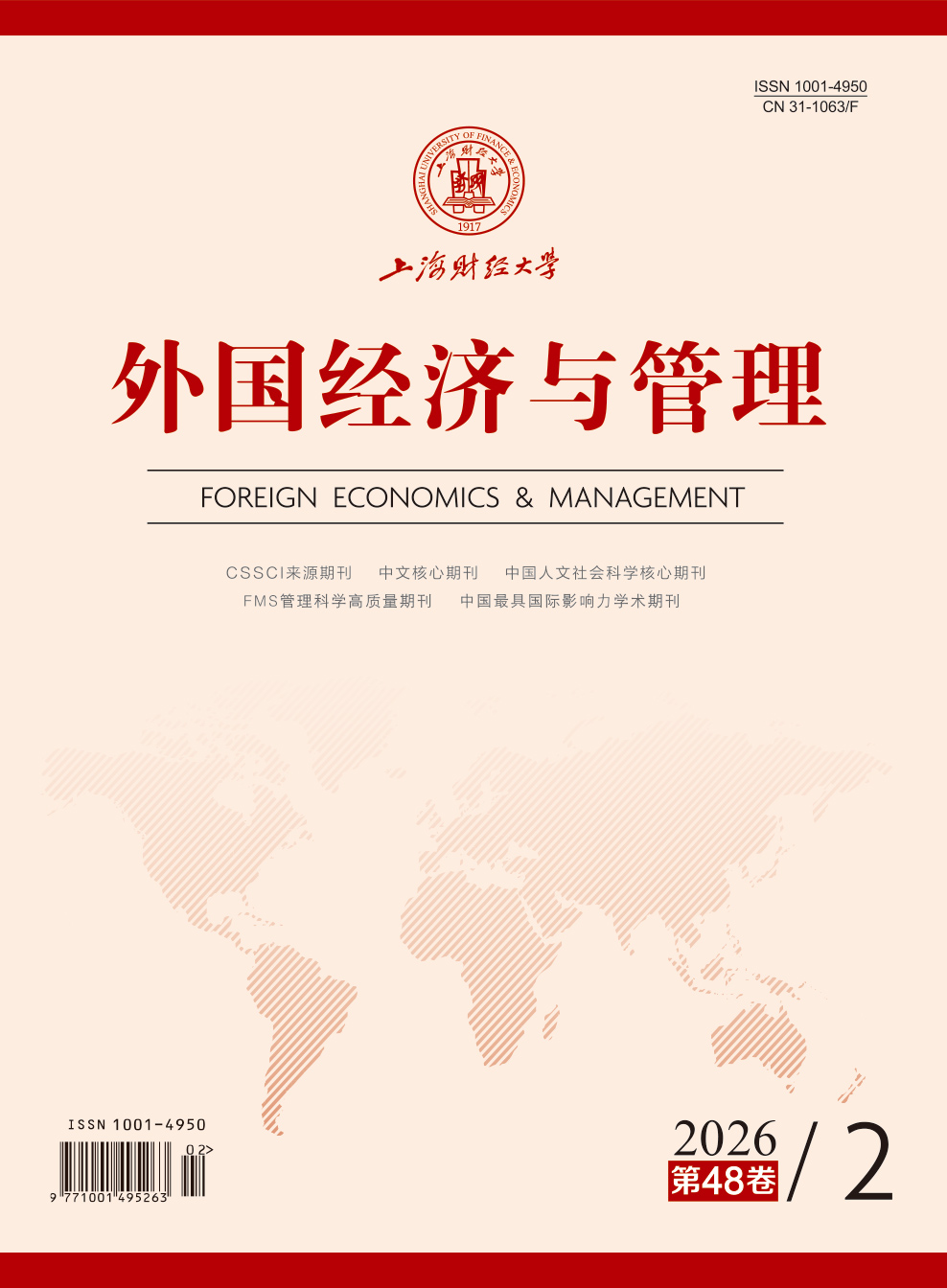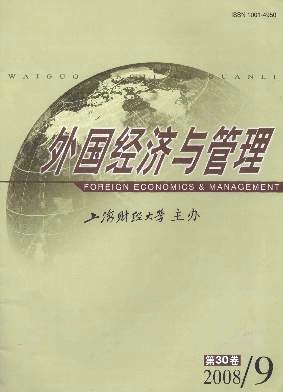利他主义、亲情寻租与家族企业治理
外国经济与管理 2008 年 第 30 卷第 09 期, 页码:28 - 33
摘要
参考文献
摘要
在处于主流地位的代理理论的视野中,家族企业与古典式企业一样实现了所有权与控制权的重合,因此,这两种企业都不存在代理问题,或它们的代理问题微不足道。因循经济学个人主义分析传统的代理理论,在考察家族企业时不加思索地把个人主义分析逻辑搬到群体(家族)分析的层面上,想当然地认为家族所有与控制类似于个人所有与控制。越来越多的学者认识到,如果不将利他主义纳入基本假设框架,家族企业研究就将是残缺不全的。利他主义是一把"双刃剑",既能减轻代理问题,也会引发代理问题。本文在寻租理论和影响成本理论的基础上提出了亲情寻租的观点,用以分析利他主义对家族企业造成的代理问题,并讨论相应的治理方式。
[1]李东.家族理性与家族企业[M].北京:经济科学出版社,2006.
[2]Hirsch,P M,Michaels,S,and Friedman,R.“Dirty hands”versus“clean models”:Is sociology in danger of being seduced by econom- ics?[J].Theory and Society 1987,16(3):317-336.
[3]Ghoshal,Sumantra,and Moran,Peter.Bad for practice:A critique of the transaction cost theory[J].Academy of Management Review, 1996,21,(1):13-47.
[4]Becker,Gary S.Theory of social interaction[J].Journal of Political Economy,1974,82(6):1 063-1 093.
[5]Becket,Gary S.Altruism,egoism,and genetic fitness:Economics and sociobiology[J].Journal of Economic Literature,1976,14(9):817-826.
[6]Becker,Gary S.Altruism in the family and selfishness in market place[J].Economica,1981,48(2):87-94.
[7]杨春学.经济人与社会秩序分析[M].上海:三联书店和上海人民出版社,1998.
[8]Ward,J L.Keeping the family business healthy:How to plan for continuous growth,profitability,and family leadership[M].San Fran- cisco,CA:Jossey-Bass,1987.
[9]Holtz-Eakin,D,Joulfian,D,and Rosen,H S.The Carnegie conjecture:Some empirical evidence[J].Quarterly Journal of Economics, 1993,108:413-435.
[10]Stark,O,and Falk,I.Transfers,empathy formation,and reverse transfers[J].American Economic Review,1998,88(2):271-276.
[11]Simon,H A.Altruism and economics[J].American Economic Review,1993,83(1):156-161.
[12]Eshel,I,Samuelson,L.and Shaked,A.Altruists,egoists,and holligans in a local interaction model[J].American Economic Review, 1998,88(1):157-179.
[13]Gersick,K E,Davis,J A,Hampton,M M,and Lansberg,I.Generation to generation:Life cycles of the family business[M].Cam- bridge,MA:Harvard Business School Press,1997.
[14]Schulze,W S,Lubatkin,M H,Dino,R N,and Buchholtz,A K.Agency relationships in family firms:Theory and evidence[J].Organi- zation Science,2001,12(2):99-116.
[15]Schuize,W,Lubatkin,M,and Dino,R.Altruism,agency and the competitiveness of family firms[J].Journal of Managerial and Deci- sion Economics,2002,23(4/5):115-125.
[16]Schulze,W,Lubatkin,M,and Dino,R.Exploring the agency consequences of ownership dispersion among inside directors at family firms[J].Academy of Management Journal,2003a,46(2):179-194.
[17]Schulze,W,Lubatkin,M,and Dino,R.The organizational consequences of altruism in family-managed firms:Theory and evidence[J]. Journal of Business Venturing,2003b,18:473-490.
[18]戈登·塔洛克.寻租:对寻租活动的经济学分析[M].(朱大可译).成都:西南财经大学出版社,1999.
[19]Milgrom,P.Employment contracts,influence activities,and efficient organization design[J].Journal of Political Economy,1988,96 (1):42-60.
[20]郑伯埙.差序格局与华人组织行为[J].本土心理学研究,1995,(3):15-22.
[2]Hirsch,P M,Michaels,S,and Friedman,R.“Dirty hands”versus“clean models”:Is sociology in danger of being seduced by econom- ics?[J].Theory and Society 1987,16(3):317-336.
[3]Ghoshal,Sumantra,and Moran,Peter.Bad for practice:A critique of the transaction cost theory[J].Academy of Management Review, 1996,21,(1):13-47.
[4]Becker,Gary S.Theory of social interaction[J].Journal of Political Economy,1974,82(6):1 063-1 093.
[5]Becket,Gary S.Altruism,egoism,and genetic fitness:Economics and sociobiology[J].Journal of Economic Literature,1976,14(9):817-826.
[6]Becker,Gary S.Altruism in the family and selfishness in market place[J].Economica,1981,48(2):87-94.
[7]杨春学.经济人与社会秩序分析[M].上海:三联书店和上海人民出版社,1998.
[8]Ward,J L.Keeping the family business healthy:How to plan for continuous growth,profitability,and family leadership[M].San Fran- cisco,CA:Jossey-Bass,1987.
[9]Holtz-Eakin,D,Joulfian,D,and Rosen,H S.The Carnegie conjecture:Some empirical evidence[J].Quarterly Journal of Economics, 1993,108:413-435.
[10]Stark,O,and Falk,I.Transfers,empathy formation,and reverse transfers[J].American Economic Review,1998,88(2):271-276.
[11]Simon,H A.Altruism and economics[J].American Economic Review,1993,83(1):156-161.
[12]Eshel,I,Samuelson,L.and Shaked,A.Altruists,egoists,and holligans in a local interaction model[J].American Economic Review, 1998,88(1):157-179.
[13]Gersick,K E,Davis,J A,Hampton,M M,and Lansberg,I.Generation to generation:Life cycles of the family business[M].Cam- bridge,MA:Harvard Business School Press,1997.
[14]Schulze,W S,Lubatkin,M H,Dino,R N,and Buchholtz,A K.Agency relationships in family firms:Theory and evidence[J].Organi- zation Science,2001,12(2):99-116.
[15]Schuize,W,Lubatkin,M,and Dino,R.Altruism,agency and the competitiveness of family firms[J].Journal of Managerial and Deci- sion Economics,2002,23(4/5):115-125.
[16]Schulze,W,Lubatkin,M,and Dino,R.Exploring the agency consequences of ownership dispersion among inside directors at family firms[J].Academy of Management Journal,2003a,46(2):179-194.
[17]Schulze,W,Lubatkin,M,and Dino,R.The organizational consequences of altruism in family-managed firms:Theory and evidence[J]. Journal of Business Venturing,2003b,18:473-490.
[18]戈登·塔洛克.寻租:对寻租活动的经济学分析[M].(朱大可译).成都:西南财经大学出版社,1999.
[19]Milgrom,P.Employment contracts,influence activities,and efficient organization design[J].Journal of Political Economy,1988,96 (1):42-60.
[20]郑伯埙.差序格局与华人组织行为[J].本土心理学研究,1995,(3):15-22.
引用本文
何轩, 朱沆. 利他主义、亲情寻租与家族企业治理[J]. 外国经济与管理, 2008, 30(9): 28–33.
导出参考文献,格式为:
上一篇:供应链混合渠道分销研究述评
下一篇:家族企业绩效研究分歧及其整合





 8149
8149  816
816

